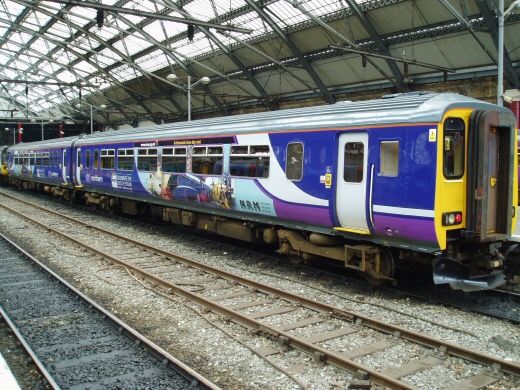Open data startup, Fasteroute, and the Open Data Institute research reveals the UK cities most affected by morning delays and how commuters can avoid them.
Manchester has the second worst odds for commuters arriving on time between 7–10am, below Birmingham.
On average every two in five (43%) train services arrive late into Piccadilly, Victoria, Oxford Road stations between 7–10am. Among these stations:
Commuters are more likely to arrive late than on time between 8–9:30am (52–54% of trains are late, 11–13% above the average across all 16 cities) – common arrival times for commuters – causing on average over 12 hours of delays a year (equivalent to almost two working days)
The most unreliable arrival times are between 9–9:30am, where over half (54%) of trains arrive late, causing on average almost 13 hours of delays a year, the most unreliable time across all cities is 8:30–9am (43%)
Arriving before the peak of morning delays between 7–8am, gives commuters a one in four chance (25-27%) of arriving late and reduces annual delays by half (over 6 hours) in comparison to those arriving between 8–9:30am (over 12 hours).
Although 1–10 minute delays are considered by the rail industry as minor disruptions, avoiding such delays will create cumulative time savings and help commuters to avoid negative knock-on effects to journeys, such as missing transport connections which could result in further delays.
The research reveals that delays become longer as the morning goes on, which may suggest that earlier delays affect later services. If people were to work more flexible hours, they could reduce their exposure to regular delays. This may also reduce passenger congestion and ease pressure points on the network.
The data reveals that Om average across all cities between 7–10am, commuters have between a one in four (24%) chance (7–7:30am) and two in five chance (43%) (8:30–9am) of arriving late. This varies from city to city.
Commuters in Birmingham, Manchester, York, Sheffield and Cardiff are most likely to be delayed on services arriving between 7–10am (two in five, 39–45%, of trains are late)
Commuters arriving into Birmingham, Manchester, Glasgow and Cardiff between 8:30am–9am, the busiest time for train services, more than half (50–52%) of trains are likely to arrive late rather than on time
Commuters in Exeter, Southampton and Newcastle are the least likely to arrive late with roughly one in four (23–31%) late services.
The Fasteroute data analysis categorises delays as one minute or more after the planned arrival time, which differs to network operators that may classify delays as five minutes or more. The data is collected in “real time”, giving rail passengers an up-to-the-minute view of train service delays, allowing better-informed travel choices to be made to optimise their journeys on a daily basis.
For the first time, the Fasteroute Delay Explorer allows commuters to evaluate a train service’s reliability. By analysing a service’s punctuality over time, visualisations show users the probability of arriving on time, or with delays, and how likely it is that a certain train may be cancelled, while directly comparing services at similar times. Each reliability rating is also available in the Fasteroute app’s live departures and arrivals board.
George Goldberg, Co-Founder, Fasteroute, said
“Fasteroute empowers rail passengers to improve their journeys. By choosing more reliable trains to travel on, and avoiding those with a history of delays and disruption, passengers can save time and worry less. Over time, data continually collected across the rail network will allow Fasteroute to predict how major incidents will affect rail services, and assist passengers to get to where they need with minimum hassle and inconvenience.”
The Fasteroute Delay Explorer was developed as a commissioned ODI summer showcase project, ‘Visualising Rail Disruption’.







